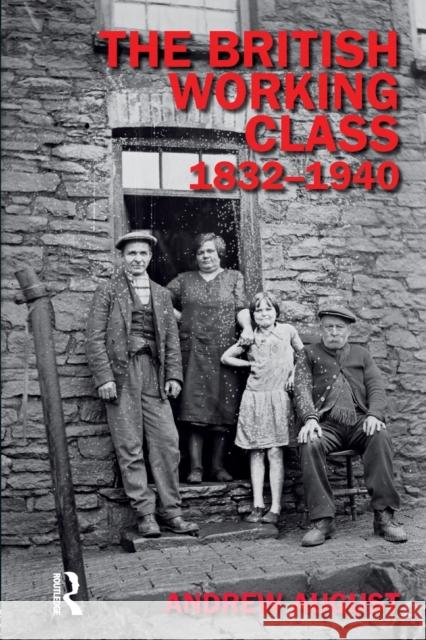The British Working Class, 1832-1940 » książka
The British Working Class, 1832-1940
ISBN-13: 9780582381308 / Angielski / Miękka / 2007 / 296 str.
"This clear-eyed survey of working-class experience [...] presents a thoughtful, thorough, and up-to-date overview of scholarly debates about class, culture, and popular politics in the world's first industrial nation. Anyone interested in [...] the changing contours of working-class life between the Great Reform Act and the People's War will find this a most rewarding point of departure." Prof Susan Thorne, Duke University
"Since the 1970s our assumptions about class have crumbled before profound social, economic, and political changes and far-reaching theoretical critiques. We desperately need a sure-footed, comprehensive, and critical guide through the resulting complexities, and Andrew August now delivers the goods." Prof Geoffery Eley, University of Michigan
In this insightful new study, Andrew August examines the British working class in the period when Britain became a mature industrial power, working men and women dominated massive new urban populations, and the extension of suffrage brought them into the political nation for the first time.
Between 1832 and 1940, there were huge fluctuations in Britain’s economic status and the circumstances of working-class life. Standards of housing and sanitation changed drastically, efforts to control fertility resulted in smaller families, and as working hours got shorter, leisure activities played a greater role inpeople’s lives. Nonetheless, the role of the family remained central, and certain leisure interests helped define the working class. The shared experience of manual labour remained at the core of working-class life, and distinctive patterns of work, leisure and family life nourished class consciousness.
Framing his subject chronologically, but treating it thematically, August gives a vivid account of working class life between the mid-nineteenth and mid-twentieth centuries, examining the issues and concerns central to working-class identity. Identifying shared patterns of experience in the lives of workers, he avoids the limitations of both traditional historiography dominated by economic determinism and party politics, and the revisionism which too readily dismisses the importance of class in British society.
Professor Andrew August is Associate Professor of History in the Abington College of Penn State University, Pennsylvania, USA. He is the author of Poor Women’s Lives: Gender, Work and Poverty in Late-Victorian London(1999).











